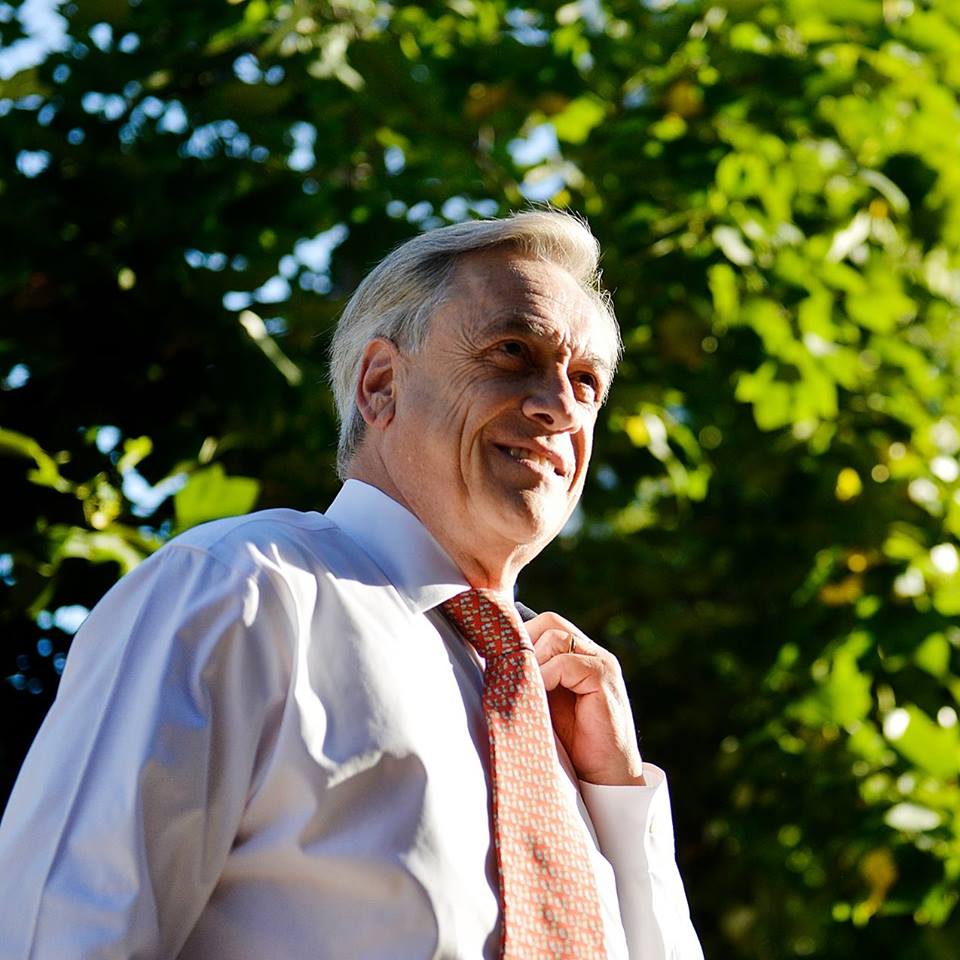News
Pinera likely to win Chile elections, but runoff expected

Four years after leaving office as a deeply unpopular leader, Sebastian Pinera is a strong favourite to win Sunday’s presidential election in Chile, though he’s unlikely to avoid a runoff. (Photo: Sebastián Piñera.Facebook)
SANTIAGO, Chile — Four years after leaving office as a deeply unpopular leader, Sebastian Pinera is a strong favourite to win Sunday’s presidential election in Chile, though he’s unlikely to avoid a runoff.
A flagging economy and other stumbles by the centre-left government of Michelle Bachelet appear to have warmed Chileans’ memories of Pinera, a billionaire businessman who was plagued by massive protests over inequality and education rights but oversaw economic growth averaging 5.3 per cent yearly during his term from 2010 to 2014.
The world’s top copper producing country has been hit by lower international prices and demand for the metal that is the backbone of its economy and the slump has cast a retrospective glow over Pinera’s reputation, who had favourability ratings of about 34 per cent when he left office.
Pinera, a 67-year-old conservative, promises to launch an aggressive investment plan to combat the slowdown that has seen growth average about 1.5 per cent yearly under Bachelet. The Harvard-educated entrepreneur with a fortune estimated at $2.7 billion is proposing to cut taxes on business to promote growth.
Pinera also may be aided by lower turnout — voting was made voluntary rather than mandatory in 2012 — and by splits in the centre-left coalition, many of whose members feel that Bachelet wavered in her promises of profound social changes in labour and education.
Pinera will win “because the governments of the left weren’t able to follow on their promises and keep up to the high expectations that they had set up,” said Marcelo Mella, the dean of the humanities faculty at Chile’s University of Santiago.
A September-October poll by top Chilean polling company CEP gave Pinera at least a 2-1 margin over his nearest competitor, though a little short of the 50 per cent he would need to avoid a Dec. 17 runoff. He was backed by about 44 per cent of likely voters, while centre-left Sen. Alejandro Guillier was favoured by 20 per cent, with six other candidates splitting 20 per cent and about 16 per cent saying they would abstain or cast blank ballots. The margin of error was 3 percentage points.
Bachelet was Chile’s most popular president during her first term, but ended her second as the least popular. In addition to economic troubles, she was hurt by a real estate scandal involving her family, though no charges were brought.
“People don’t really like Pinera, but they see it as a marriage by convenience. They think Pinera can generate economic growth and employment, thus even if they don’t like him, they seem determined to re-elect him as president in the runoff,” said political scientist Patricio Navia of New York University.
“People like Bachelet better on the personal level,” he added, “but they think Pinera makes a better president.”
Guillier, a 64-year-old journalist, has vowed to continue Bachelet’s plan to increase corporate taxes to partly pay for an education overhaul, improvements to the pension and health care system and the development of alternative sources of energy to lower investment costs.
Thursday was the last day of campaigning for elections that will also choose 155 members of the lower House of Congress and 23 seats are up for grabs Senate.





















